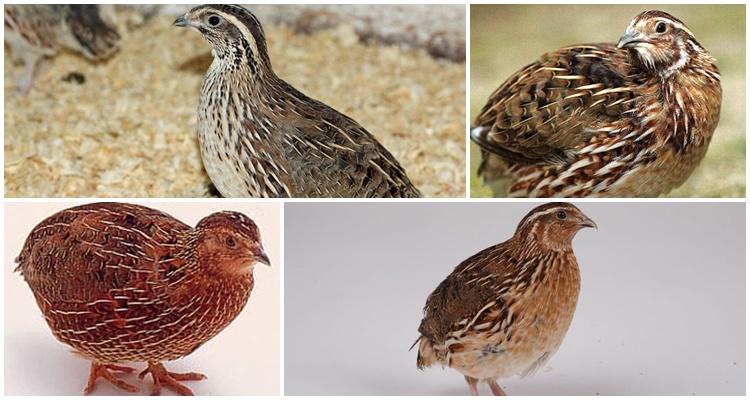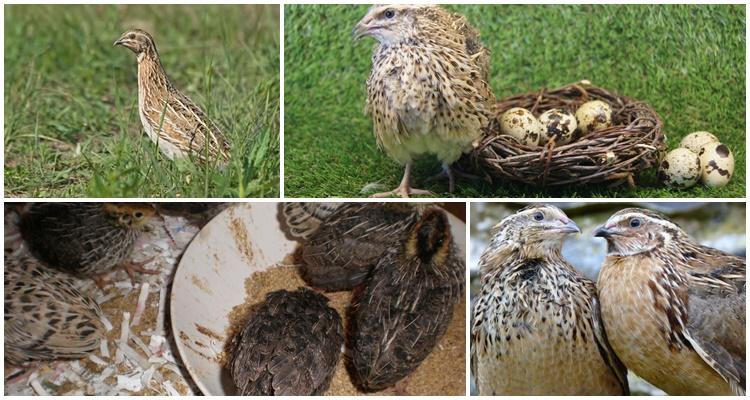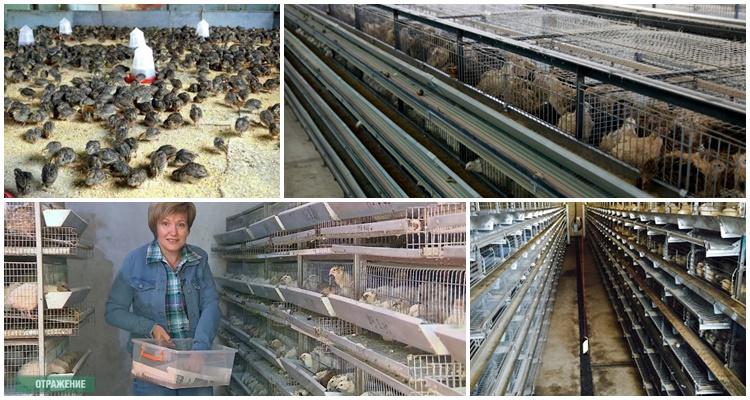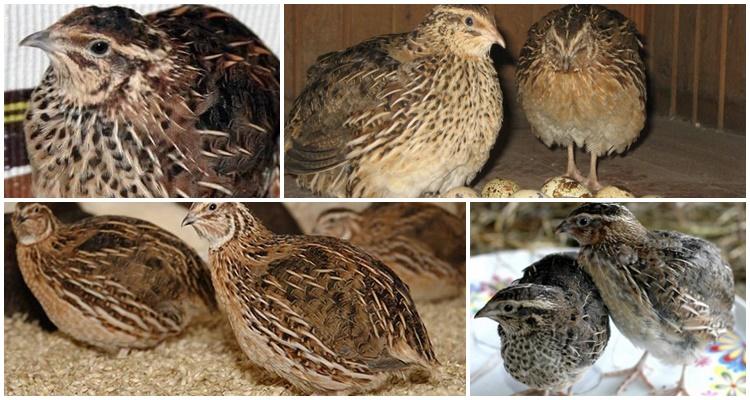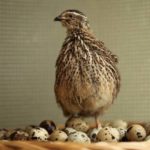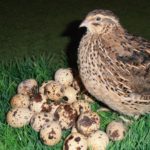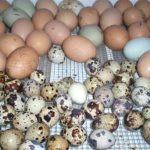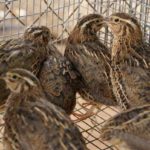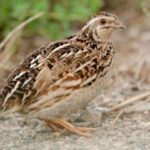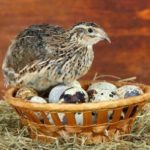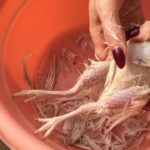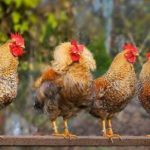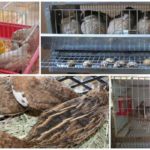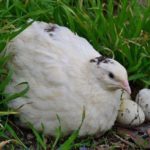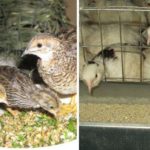Quails are grown mainly for their eggs, which are small but healthy and tasty. Females should lay eggs almost every day, but there are times when egg production stops. There are various reasons for this. Let's look at why quails don't lay eggs and the reasons for this phenomenon. How to find out which bird is not laying eggs, how to restore egg production and prevent a decline.
- Why do quails not lay eggs at home?
- Incorrect lighting
- Reduced or increased temperature in the poultry house
- Improper feeding
- Lack of water
- High or low humidity
- Poor living conditions
- Shedding
- Stress
- Adaptation period
- Diseases
- Quail age
- How to identify quails that are not laying eggs
- How to solve a problem?
- Prevention measures
Why do quails not lay eggs at home?
Stable egg production rates are only possible if the bird is raised under the right conditions and receives good feeding. Violation of housing conditions or an incorrectly selected diet leads first to a deterioration and then to a suspension of egg production.
Incorrect lighting
This is one of the main reasons. Quails love long daylight hours - at least 18 hours in a row. You need to turn on the lights in the room from 6 a.m. and leave them on until 12 a.m. It is recommended to turn on the light at night - from 2 to 4 o'clock. You cannot leave the light on around the clock. It is convenient to maintain the lighting mode with the help of automatic systems that will turn the light on and off without owner intervention.
Reduced or increased temperature in the poultry house
Quails lay eggs well at temperatures of 20˚C. This temperature must be maintained both in summer and winter. Small deviations of a couple of degrees are allowed. When the temperature decreases or increases above the permissible norm, egg production decreases.
Improper feeding
The supply of nutrients affects the bird’s body and its functionality, including the functioning of the reproductive system. If the food usually received by quails is lacking in certain substances or minerals, this will affect the volume of eggs laid. This is understandable, because birds need to spend nutrients and energy to maintain the functioning of their body; in conditions of deficiency of components, the formation of eggs is relegated to the background.
A sudden change of food from one to another also causes a temporary cessation of egg production.If quails receive only compound feed, you need to pay attention to its quality. Poor quality mixtures are one of the reasons for the decline and cessation of egg production.
Lack of water
If quails do not receive enough water, they become stressed and their bodies cannot function normally. If the females have stopped laying eggs, you need to check whether there is water in the drinking bowls. Make sure that it is there constantly, change it so that it is fresh.
High or low humidity
The air humidity in the room with quails is set at 60%. More or less humidity leads to a decrease in egg production.
Poor living conditions
Despite the fact that quails can make do with a small living space, they cannot be kept in close quarters. Living in crowded conditions leads to stress and nervousness, which negatively affects the body functions of birds. We must not forget that being kept in a dirty cage also has a bad effect on quails. This not only brings discomfort, but also leads to illness.
Shedding
This is a natural process, so it’s worth waiting until it ends. Birds molt in the summer, changing feathers lasts a week. Then egg production is restored.
Stress
Stress can cause constant noise near the cage, for example, running household appliances, the presence of animals in the room. Birds can fight, which also negatively affects the number of eggs.
Adaptation period
When transporting and changing their habitat, quail become stressed and stop laying eggs. Over time, when they get used to it, which can take up to 2 weeks, the eggs appear again. Change of male, to which the females are already accustomed. The birds adapt to the new male quickly - within a week - and begin to lay eggs again.
Diseases
Sick birds naturally reduce performance. This happens due to the stress on the body, the fight against the current disease. Diseases can affect any organ or the entire body. The reproductive system itself may suffer. There may be another reason - in laying hens, large eggs can damage the soft tissue of the oviduct.
Quail age
Only young quails up to one year old lay eggs well. Then the number of eggs gradually decreases. After 3 years of life, females stop laying eggs. It is difficult to influence the aging of a bird's body; youth can be prolonged with good feeding and maintenance.
How to identify quails that are not laying eggs
To determine which females do not want to lay eggs, you need to examine their oviducts. In good layers they are wide, moist, not wrinkled, in bad ones they are pale and tightly closed. But it is difficult to recognize anything by appearance - both of them can have a healthy appearance. They can be active, eat well, and have shiny, smooth plumage.
How to solve a problem?
First you need to determine the exact reason, check whether the conditions of detention meet the required ones. If everything is in order, you need to check the diet to see if the food has enough nutrients and is balanced. It is necessary to change the feed, introduce new products, herbs, and vitamin preparations. Feed birds during adaptation and molting.
Place the birds in cages in such numbers that it is comfortable, the quails do not crowd together and do not fight. If it is clear that the quails are not comfortable, you should try to purchase new cages and transplant the extra quails into them. Despite the costs, purchasing new cells will pay off in the future.
Clean the cages every day and change the water in the drinking bowls.Disinfect cages and equipment, this should be done once a month. Such measures will help avoid illnesses.
If the reason for the cessation of egg production is stress from transportation or purchase, then you just need to wait a while until the birds get used to it. If quails stop laying eggs due to aging, there is nothing left to do but replace the old hens with new pullets.
Prevention measures
It is necessary to monitor the room temperature, humidity and lighting. These are the conditions for the normal life of quails. Feed the birds 2-3 times a day, use only high-quality food that will provide the quail with all the necessary nutrients.
Calculate how many heads are housed in a cage of a certain area; this number cannot be exceeded. Prevent and treat infections, treat cages and birds from external parasites.
Quails are bred for egg production. Females can lay eggs almost every day, but it happens that the clutch decreases or stops. There are reasons for this. With the proper organization of a home farm for the production of quail eggs, you can expect that egg production, and, accordingly, profit from economic activities will be stable.

